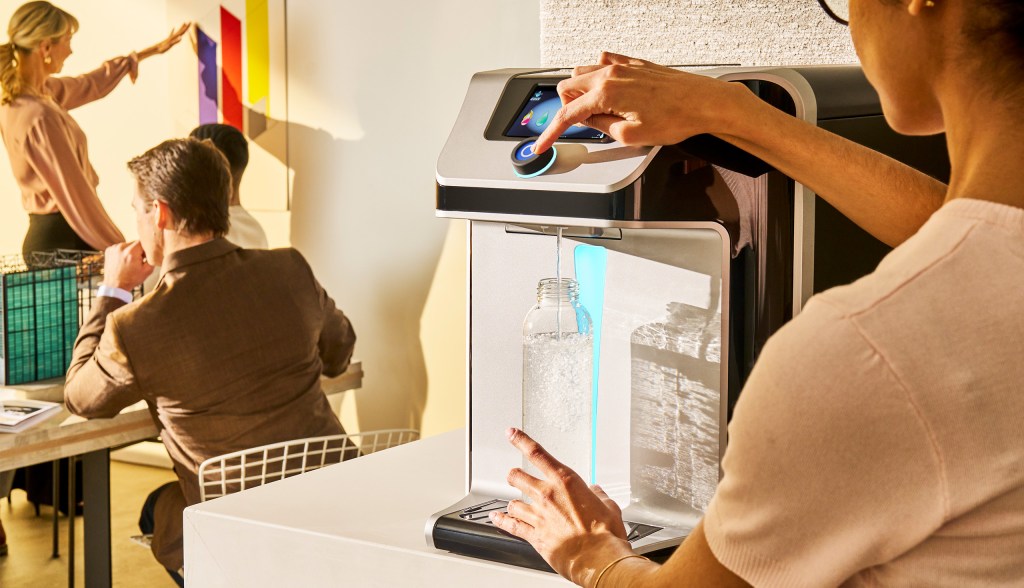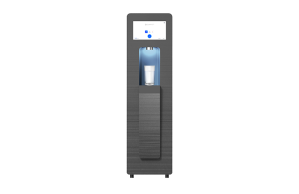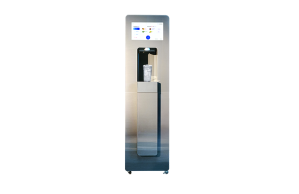
Revolutionizing hydration: Smart water technology in office water coolers
Internet of Things (IoT) devices make life easier in homes, workplaces and public spaces. From home automation that helps people reduce electric bills while increasing functionality to intelligent business security tech that safeguards company assets, modern technology offers numerous benefits. Did you know those benefits extended to hydration and water management?
Smart water technology can transform how your employees hydrate and how you support overall wellness in your business. From cutting-edge office water coolers to IoT smart faucets, advanced water technology lets you monitor water usage to support more sustainable processes and meet employee hydration preferences and needs in essential ways.
This article explores various aspects of smart water technology, including what it is, its benefits in workplaces, key components of these systems, and the challenges you might face when implementing them.
What is smart water technology in workplaces?
Smart water technology in the workplace refers to a wide range of advanced technologies designed to provide safe drinking water, monitor and manage water usage and support sustainability.
For example, touchless water cooler dispensers make it easy for employees and visitors to fill water bottles or cups without touching the dispensing device, improving overall sanitation in shared spaces. The Q3 Bottleless Water Cooler from Culligan Quench includes advanced filtration features to reduce contaminants like PFAS, lead, and microplastics for safer drinking water in your business. Smart faucets and other fixtures can help reduce waste by ensuring sinks aren’t left on or helping you quickly identify leaks.
Smart water technology offers applications relevant to almost any industry. In hospitality locations, for example, intelligent water filters and other devices can enhance guest experience by ensuring optimal water quality in lobbies and spas. In office spaces, smart water systems support sustainability goals and help reduce operational costs while ensuring employees and visitors have access to water for hydration and personal needs. In any commercial setting, investment in smart water technology can drive efficiency and help promote the responsible use of water resources.
Benefits of smart water technology in workplaces
Investing in and integrating smart water technologies supports a wide range of benefits. Some smart water benefits include:
- Enhanced employee wellness and health. Smart hydration solutions ensure employees have convenient access to high-quality drinking water, helping them maintain optimal hydration. Good hydration helps support energy levels, focus, and productivity, so it can have a positive knock-on effect for your business goals.
- Better employee and visitor experiences. With smart water coolers and other technology, you can meet the needs and preferences of a wide range of people in your business. For example, you might invest in flavored water dispensers or sparkling water dispensers to make hydration more enjoyable.
- Improved sanitation. Culligan Quench offers touchless water coolers equipped with sensor-activated technology, allowing employees and others to dispense drinking water without ever making physical contact with the cooler itself. This reduces shared touchpoints and the potential for spreading germs.
- Increased sustainability. Options like bottleless water coolers encourage employees and guests to use sustainable drinking solutions and reduce reliance on one-use plastic water bottles.
- Reduced costs. Advanced water technology can help you drive conservation practices in the workplace, reducing the amount of what you use and the cost that comes with it.
Key components of smart water technology systems
Before you can implement a smart water system in your business, you should conduct a comprehensive assessment of your current and expected water usage needs. Consider what elements you already have in place to serve those needs and how you might leverage smart systems to improve them.
Some key components of smart water technology systems include:
- Countertop or freestanding water coolers that serve hydration needs by providing easy, safe and hygienic access to drinking water
- Smart fixtures such as faucets that turn off after a certain amount of time or help regulate water flow to optimize sustainability
- Low-flow fixtures and eco-friendly toilets that reduce how much water is required to handle every day tasks like hand washing and flushing
- Upgraded plumbing that addresses slow leaks and creates a platform from which you can monitor water usage
- Software solutions that make it easy to monitor water usage and quality in real-time so you can proactively manage water in your facility
Challenges and considerations
Adopting advanced water technology in workplaces comes with a variety of challenges. First, you may need to integrate new water technologies with existing systems. It’s essential to conduct a thorough assessment of your existing systems, noting where they do or don’t meet your needs. Make a plan that details what systems must be replaced and what systems may work with upgrades.
Next, consider how to support buy-in for new water technology at all levels of the business. Depending on how complex the change is, you may need to provide training to ensure your staff can optimize use of new technologies.
Before you make changes — and as you implement new technologies — be cognizant of local, state and federal regulations. Ensure that your upgrades adhere to water quality standards and allow you to meet OSHA requirements for potable and drinking water in your business.
Cost is another common challenge businesses run into when implementing smart water technologies. While upfront costs for smart water solutions can be high, conducting an ROI analysis helps you understand the long-term benefits. Most businesses experience significant savings over time through reduced water use and lower operating costs.
Future trends in smart water technology
The smart office water cooler is only the tip of the water technology iceberg. Looking ahead, emerging technology and innovations are set to revolutionize how workplaces manage water. Trends suggest that future innovations will create even more options for personal adaptations and sustainability.
Upgrade your office with smart, bottleless water coolers for improved hydration and sustainability. Schedule a consultation to discover the best solution for your business.
Recommended products
Culligan Quench has an advanced suite of point-of-use systems that are designed to meet the needs of workplaces of all shapes and sizes. Here are some products we recommend for your business.
Q14 Bottleless Water Cooler
Available with quenchWATER+ electrolyte water

Twist Flavored Water Dispenser
